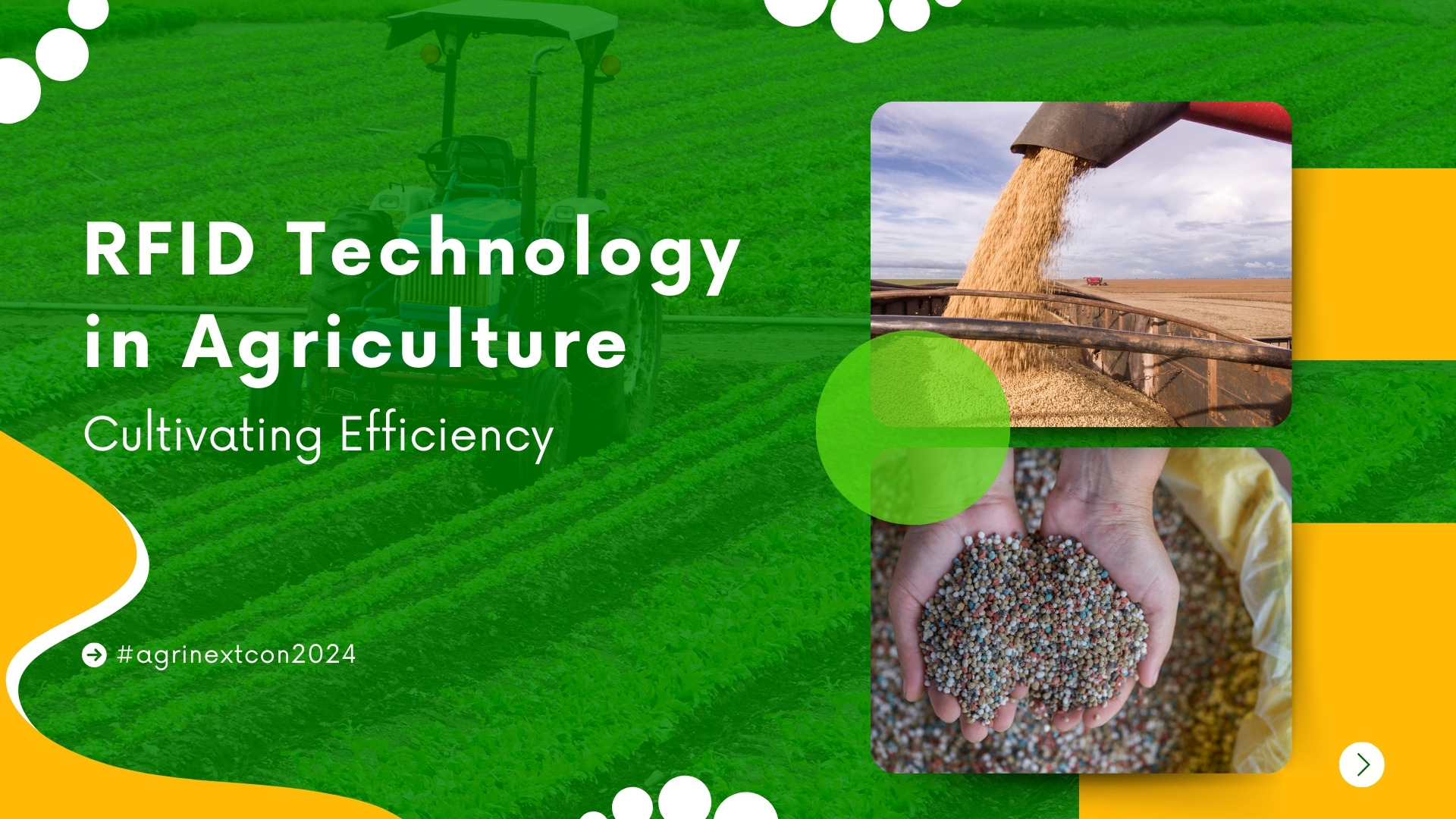
Radio-frequency identification (RFID) technology has become a cornerstone in various industries, reshaping how we identify, track, and manage objects. This technology employs radio waves to transmit data between a reader and an RFID tag attached to an object.
One of RFID’s primary advantages is its efficiency in automating processes. In supply chain management, RFID tags enable real-time tracking of products, reducing errors and enhancing inventory accuracy. This not only streamlines operations but also minimizes losses due to mismanagement.
“RFID is not just a technology; it’s a competitive differentiator.”
– Bill Hardgrave
RFID technology has found a fertile ground in the agriculture sector, offering innovative solutions to enhance efficiency and productivity across various processes.
Crop Monitoring:
RFID tags embedded in agricultural products facilitate precise monitoring of crops. From planting to harvesting, these tags provide data on growth stages, allowing farmers to optimize irrigation, fertilization, and harvesting schedules. This data-driven approach promotes resource efficiency and maximizes crop yields.
Livestock Management:
RFID tags are employed for tracking and managing livestock. Each animal can be fitted with a unique RFID tag, allowing farmers to monitor health, track movement, and manage breeding programs effectively. This not only streamlines record-keeping but also aids in disease control and ensures the overall well-being of the herd.
Supply Chain Visibility:
RFID enables end-to-end visibility in the agricultural supply chain. From the farm to the market, each product can be tagged, providing real-time information on its journey. This transparency helps in minimizing losses, reducing waste, and ensuring the quality of agricultural products reaches consumers.
Equipment and Asset Tracking:
RFID tags are utilized to track and manage agricultural equipment and assets. This includes tractors, plows, and other machinery. Farmers can efficiently monitor usage, schedule maintenance, and prevent theft, contributing to cost-effective and sustainable farming practices.
Smart Greenhouses:
In greenhouse agriculture, RFID technology is applied to automate and monitor environmental conditions. RFID sensors can adjust factors like temperature, humidity, and light, creating an optimal environment for plant growth. This level of automation improves crop quality and resource utilization.
Traceability and Certification:
RFID aids in establishing traceability for agricultural products, which is crucial for quality control and meeting certification standards. From organic produce to fair-trade goods, RFID ensures that consumers have access to accurate information about the origin and production processes of the products they purchase.
In essence, RFID technology is sowing the seeds of efficiency and sustainability in agriculture. As it continues to evolve, its integration into farming practices holds the promise of fostering a more technologically advanced and resilient agricultural industry.
Applications of RFID in Agriculture
- Livestock Management:
- Identification and Tracking: RFID tags attached to livestock enable farmers to track the location and movement of each animal. This helps in preventing theft, managing grazing patterns, and ensuring the animals’ well-being.
- Health Monitoring: RFID technology can be integrated with health monitoring systems to keep track of each animal’s health records, vaccination schedules, and breeding history. This ensures timely medical intervention and improves overall herd health.
- Crop Management:
- Inventory Control: RFID tags on seed bags, fertilizers, and pesticides help in managing inventory levels efficiently. Farmers can monitor stock levels in real-time and ensure timely replenishment, reducing wastage and optimizing resource use.
- Supply Chain Transparency: From the field to the consumer’s table, RFID technology provides transparency in the supply chain. By tagging produce at harvest, farmers can track and record every stage of the product’s journey, ensuring freshness and quality for consumers.
- Equipment and Asset Management:
- Equipment Tracking: RFID tags on farming equipment help in tracking their location and usage. This minimizes the risk of theft, ensures timely maintenance, and maximizes the lifespan of the machinery.
- Resource Allocation: By monitoring the usage patterns of various assets, farmers can allocate resources more effectively, reducing downtime and improving operational efficiency.
Benefits of RFID Technology in Agriculture
- Enhanced Efficiency:
- RFID technology streamlines various farming operations, reducing manual labor and minimizing errors. Automated data collection and real-time tracking save time and allow farmers to focus on more critical tasks.
- Improved Decision-Making:
- Access to accurate and timely data empowers farmers to make informed decisions. Whether it’s adjusting feeding schedules based on livestock health or optimizing irrigation based on crop needs, RFID provides the insights necessary for precision farming.
- Cost Savings:
- By reducing waste, preventing theft, and improving resource utilization, RFID technology helps in cutting down operational costs. Efficient inventory management and asset tracking ensure that farmers get the most out of their investments.
- Sustainability:
- RFID technology supports sustainable farming practices by optimizing resource use and reducing waste. Better management of inputs like water, fertilizers, and pesticides contributes to environmental conservation and promotes eco-friendly farming.
Signup For AgriNext Conference Newsletter

